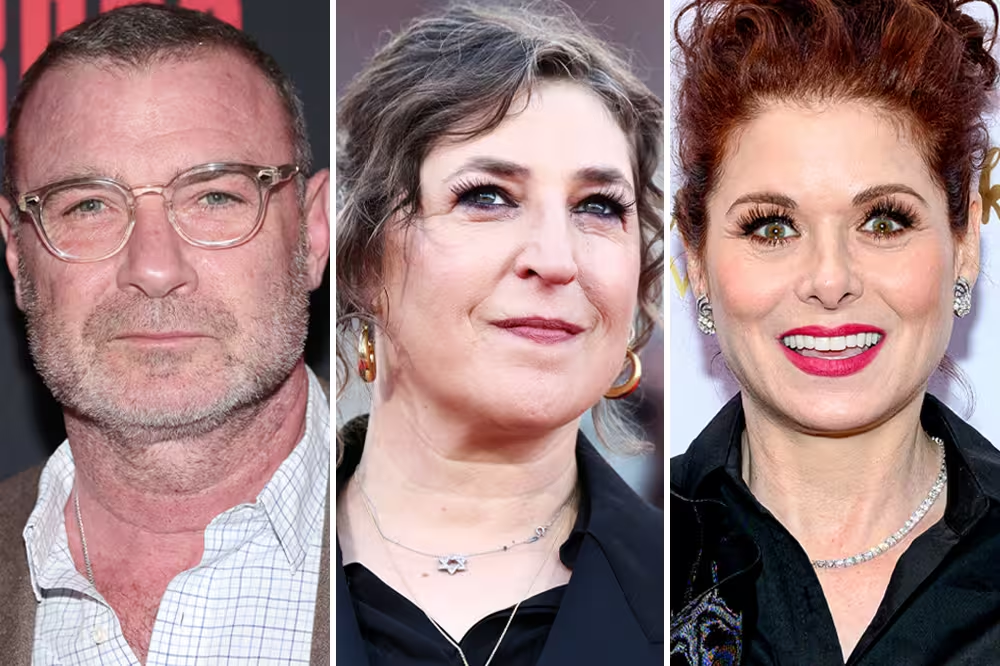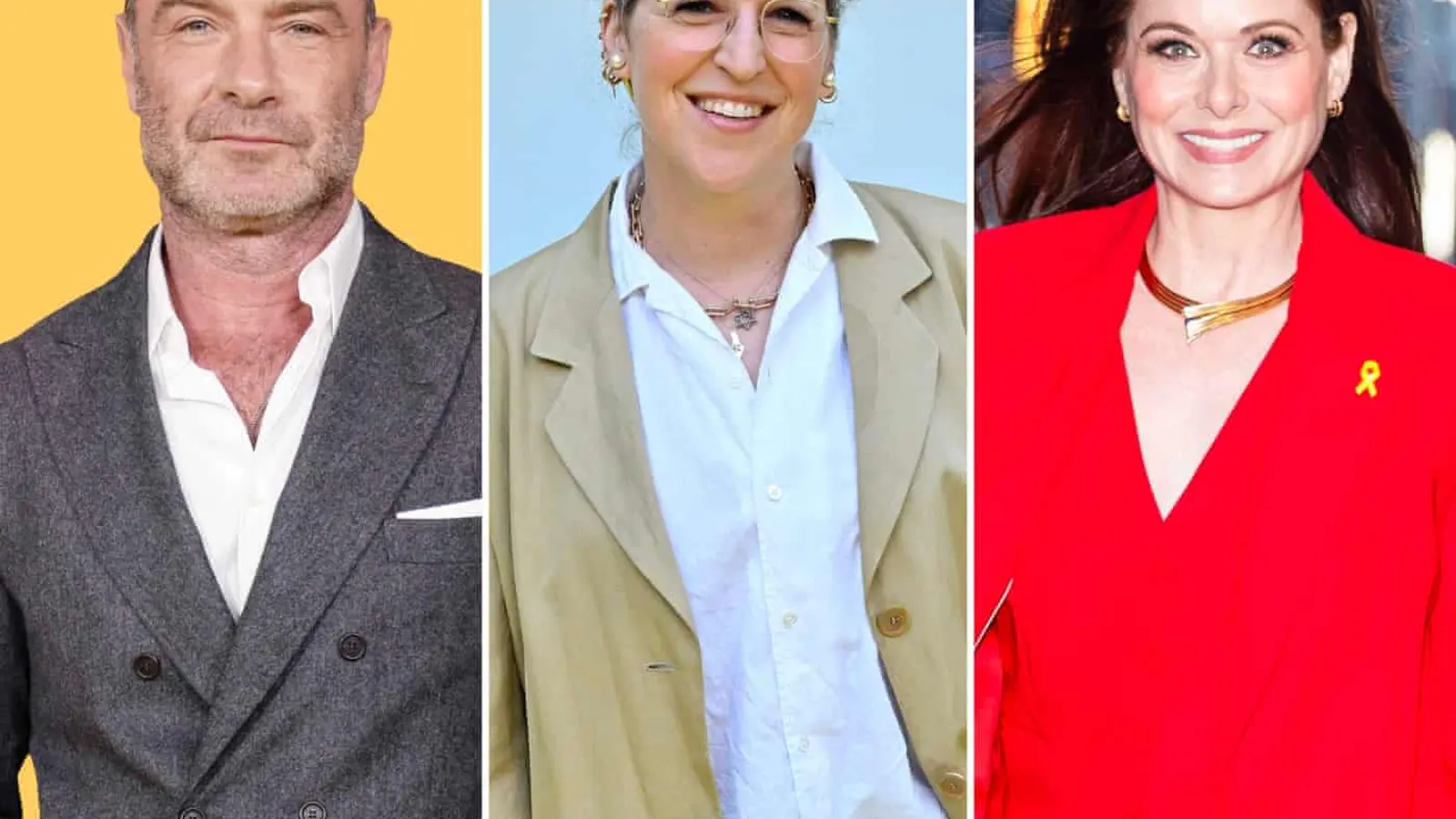6 Minutes
Industry figures push back against a sweeping boycott
More than 1,200 names from across film, television and music have added their signatures to a new open letter opposing a widely publicized pledge to boycott Israeli film institutions. The declaration — organized by the nonprofit groups Creative Community for Peace and The Brigade — asks artists who pledged to shun Israeli institutions to rethink a move its authors say risks censoring artistic voices and deepening cultural divisions.
Signatories include familiar faces from stage and screen such as Liev Schreiber, Mayim Bialik and Debra Messing, alongside musicians, producers and executives. The letter targets a separate boycott pledge circulated under the banner Film Workers for Palestine, which reportedly collected nearly 4,000 signatures from international filmmakers, actors and industry professionals.
What the letter argues
The central claim of the new open letter is that culture and storytelling are being weaponized when a blanket boycott is aimed at artists because of nationality or institutional affiliation. Its authors stress that Israeli cinema is not monolithic: the industry features critical, collaborative and dissenting voices — including Jewish and Palestinian artists who work together on films and festivals that often criticize official policy.
The letter warns that terms like 'implicated' or 'complicity' are vague tools that could be used to blacklist whole communities rather than target concrete wrongdoing. It also invokes historical examples of censorship to argue that artistic blacklists tend to expand beyond their original intent.
Context: the original boycott and its supporters
The boycott pledge, first circulated in early September, calls on signatories to refuse to work with Israeli institutions and companies it accuses of being 'implicated in genocide and apartheid against the Palestinian people.' High-profile names tied to that pledge range across the international film community.
Proponents of the boycott say it is a form of cultural pressure similar to other successful boycotts that targeted regimes or institutions; opponents counter that denying platforms to artists based on nationality punishes independent creators, chills debate and risks unintended cultural harm.

The Sea, awards politics and the practical fallout
Recent events have intensified the debate. An Israeli film that centers on a young Palestinian boy, The Sea, won the top prize at Israel's Ophir Awards and was submitted as the country's selection for the international feature Oscar race. The choice triggered a political backlash: the sports and culture minister publicly vowed to cut funding from the awards in response. This episode illustrates how festival decisions and artistic recognition can become entangled with national politics, and why many filmmakers fear that a boycott would close channels for critical voices.
Industry reaction: studios, festivals and the history of cultural boycotts
Some major industry entities have weighed in against the boycott. Paramount issued a statement rejecting efforts to silence individual artists on the basis of nationality and urging greater engagement, not exclusion. That stance echoes earlier cultural debates — for instance, the polarized responses to calls for boycotts over Russia after 2022 and the long history of politically motivated exclusions that have affected filmmakers in other eras.
Film historians and critics point out that art can be both a forum for resistance and a target for political campaigns. Past conflicts have shown that blanket bans rarely spare dissenters and can inadvertently amplify hardline voices on all sides.
Comparisons and cultural perspective
For readers tracking films that explore Israel–Palestine dynamics, this moment recalls earlier works that blurred national narratives: Ajami, Paradise Now and Foxtrot, among others, used hybrid production models and shared crews to tell difficult stories. Those films demonstrate that co-productions and collaborative cinema can open spaces for empathy and complexity — exactly what advocates of cross-cultural engagement are trying to preserve.
At the same time, the current boycott conversation follows a broader trend in the industry: creatives increasingly use collective statements to press political causes. The tension now is whether such collective action helps or hinders the fragile ecosystems that allow controversial or critical films to be made and seen.
"When you limit conversation to exclusion, you risk silencing the very artists who challenge the status quo," says cinema historian Marko Jensen. "Cultural sanctions can sometimes punish the wrong people — independent directors and festival programmers who are often the loudest critics of their governments."
Beyond policy arguments, there are practical consequences: boycotts can make international co-productions harder to finance, complicate festival programming and reduce distribution options for films that tackle politically sensitive topics.
Where this leaves filmmakers and audiences
The debate is not merely a list of statements; it plays out in film schools, production meetings and festival lineups. Artists caught between solidarity movements and the instinct to protect creative exchange must decide whether public pressure or private diplomacy will do more to advance justice and safety.
For film lovers and industry insiders alike, the moment raises urgent questions: can festivals remain spaces for contested stories? Will international collaborations survive a climate of categorical boycotts? And how should artists balance moral commitments with the craft of storytelling?
In the end, the new open letter asks colleagues to prioritize engagement — not erasure — and to consider the long-term cultural cost of shutting out entire communities of artists. Whether that argument will shift the positions of those who signed the original pledge remains to be seen.
A short, final note: cinema has often been where difficult conversations begin. This controversy may be painful, but it could also force the industry to clarify how it supports artistic freedom while grappling with political crises.
Source: variety



Leave a Comment